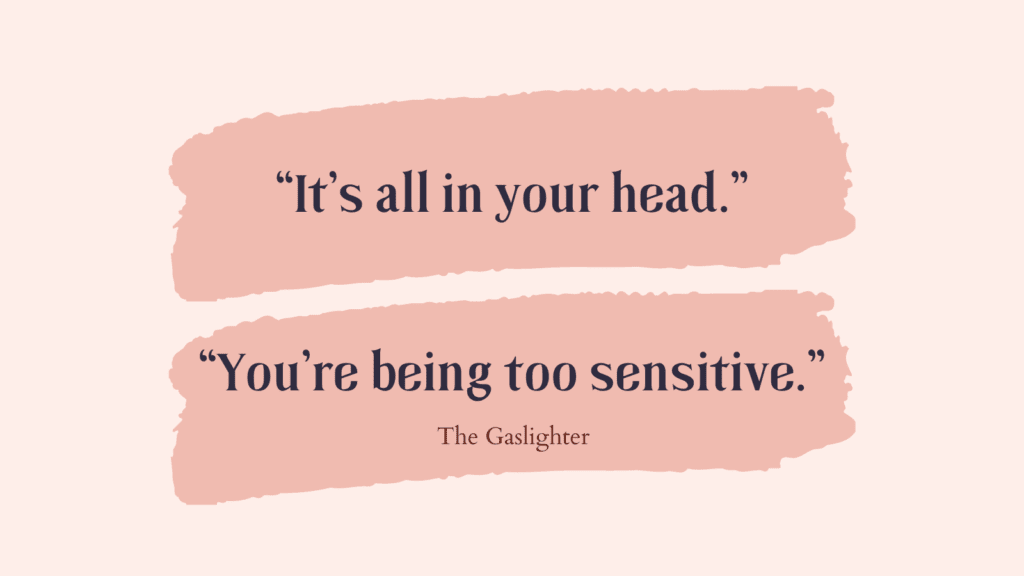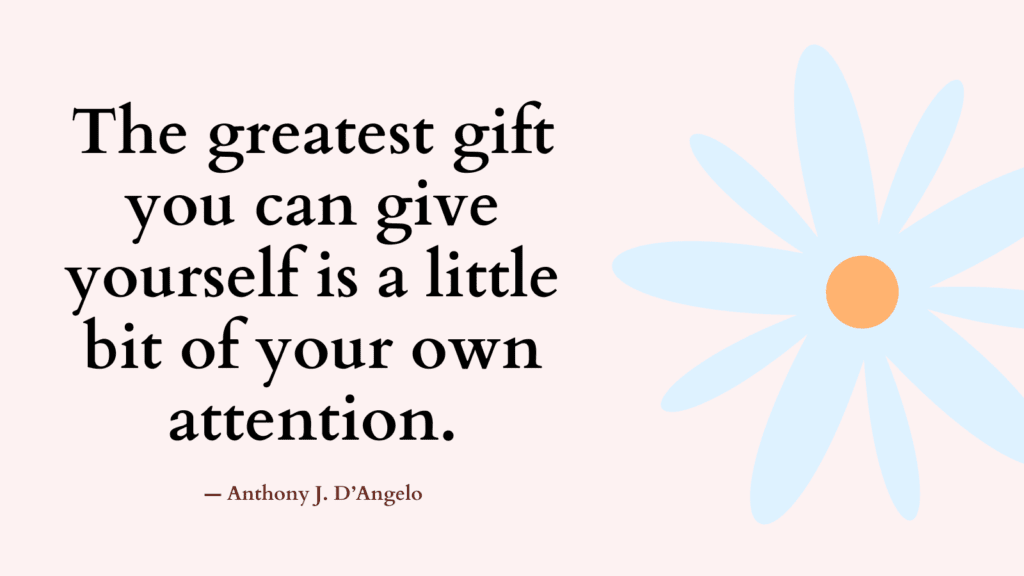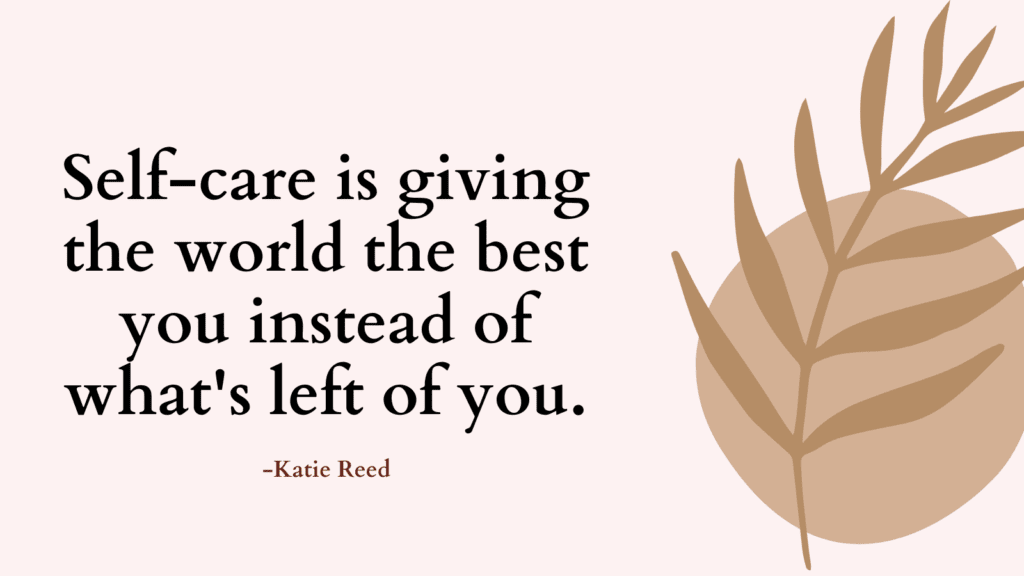This post will help you identify if you’re in a gaslighting relationship through “Am I being gaslighted Quiz” along with helpful tips on how to recover from gaslighting.
What Gaslighting Is?
Gaslighting is a form of psychological and emotional abuse that causes victims to doubt their reality and question their own judgment.
In extreme circumstances, victims of gaslighting may begin to question their sanity, believing that they’re “going crazy.”
Gaslighters distort truth to confuse, control, and manipulate their victims. They make their victims feel like what they’re experiencing is not real, that they’re making it up, and that no one will ever believe them. (source)
“The most distinctive feature of gaslighting is that it’s not enough for the gaslighter simply to control his victim or have things go his way: It’s essential to him that the victim herself actually come to agree with him,” writes Andrew D. Spear, an associate professor of philosophy at Grand Valley State University in Allendale, Michigan, in a 2019 paper on gaslighting in Inquiry.
Am I Being Gaslighted Quiz
Results
#1. Do you often feel confused and disoriented after leaving the interaction?
#2. Do you often second-guess yourself or undermine your sense of self-belief?
#3. Do you often feel silly for feeling hurt and wonder if you’re being too sensitive?
#4. Do you often find yourself questioning your reaction to things, and telling yourself you’re overreacting?
#5. Do you often feel embarrassed and/or dismissed?
#6. Do you sometimes feel like you’ve changed beyond recognition, or become numb and with little energy?
Result
The higher the score, the more gaslighting is involved in the relationship.
In extreme circumstance, gaslighting can cause Post-traumatic stress disorder, a hyperbolized fear of danger, known as hypervigilance, and even suicidal thoughts. (*)
Related: Top 10 Signs of Trauma Bonding That Are Easy To Miss

How To Recover From Gaslighting
Recovery from gaslighting and emotional abuse is a process.
It begins with awareness and coming to terms with the painful reality that you have experienced emotional abuse. This is followed by developing compassion toward yourself.
#1. Acknowledge Gaslighting And Emotional Abuse
This may bring feelings of shame and cause you to blame and criticize yourself.
It’s important to recognize that you did the best with what knew and allow yourself to feel compassion toward yourself.
What Does Gaslighting Sound Like?
“I am only hard on you because I love you.”
“I wouldn’t have said that if you hadn’t provoked me.”
“You deliberately misinterpreted what I said.” “I have no idea what you’re talking about.”
“That never happened.”
“You’re remembering it wrong.”
“You’re trying to confuse me.”
“You are too sensitive. You need to grow a thicker skin.”
“You sound crazy.”
#2. Become Aware of Internalized Gaslighting
Can you unintentionally gaslight yourself?
If you’ve been gaslit for a while, you’ve likely internalized gaslighting and started gaslighting yourself.
This is especially true if you find yourself struggling with excessive negative self-talk and self-blame.
You may find yourself thinking, “I deserve to be gaslit because I was too stupid,” or, “He’s probably right, I am [insert message].”
Leaving an abuser or setting boundaries in your relationship may not be enough when you continue to abuse yourself.

#3. Reframe Your Negative Thoughts
Once you identify negative messages from the gaslighter and even from yourself, try to reframe those messages.
Use the following questions to challenge their validity:
- Am I confusing a thought with a fact?
- Am I assuming my view of things is the only one possible?
- Am I thinking in all-or-nothing terms?
- Am I condemning myself as a total person on the basis of a single event?
- Am I concentrating on my weakness and forgetting my strengths?
- Am I blaming myself for something which is not really my fault?
- Am I taking something personally which has little or nothing to do with me?
- Am I using a double standard?
Related: Unhelpful Thinking Styles: Top 10 Common Examples of Cognitive Distortions
#4. Change Your Self-Talk
Our self-talk (the way we think about and talk to ourselves) can be compassionate and loving, or harsh and critical.
If you’ve been gaslit, you may find yourself with negative self-talk and self-perception.
If you struggle to feel compassion toward yourself, imagine a friend in the same position.
Imagine that they tell you they feel stupid for letting someone manipulate them and that they worry they’ll never gain their confidence back.
What would you tell them?
Say it to yourself!
Related: Reframing Negative Thoughts: How To Stop Overthinking And Relax? (Top 10 Techniques)
#5. Replace The Negative Messages With Positive Ones
To counter those negative messages try replacing them with positive affirmations.
The following are some examples to choose from and you can add some of your own:
- “I deserve to be treated with respect.”
- “I deserve to set and maintain boundaries.”
- “I am able to make decisions on my own.”
- “I have compassion for the parts of me that have been hurt.”
- “I am worthy of love and compassion.”
- “I will give myself space to process my painful feelings.”
- “I accept myself as I am.”
- “I am healing slowly but surely.”
#6. Offer Yourself Compassion
Mindfulness Meditation Practice
1. Sit in a comfortable position. You may close your eyes or keep them open if you wish.
2. Focus your attention on your breath. You may also choose to focus on something else in your body like your heartbeat or the blood flow in your hands and feet.
3. Now think of an incident surrounding gaslighting or any other form of emotions abuse. Choose an incident that feels moderately painful to begin with.
4. Spend a few moments reflecting on what happened.
5. Notice any emotions that may arise and allow yourself to focus on that feeling. Name the feeling by saying something like, “this is sadness,” or, “this is grief,” or, “this is anger.”
6. Notice where you feel the emotion in your body and place your hand gently on that area.
7. Visualize yourself sending a wave of love to that area as you offer your emotion a compassionate statement, such as “I offer myself compassion for my grief.”
8. Notice how you feel right now. If the emotion persists, continue to send love and compassion until you feel it softening.
9. Once you finished, try giving yourself a hug or stretching your arms, or massaging your temples, or any other soothing gesture.
#7. Write a Letter of Self-Forgiveness
If you struggle with self-blame, this exercise will help you let go of blame sooner.
Write a letter of self-forgiveness to yourself.
Be specific about what you forgive yourself for and include things you can do for yourself to prevent this from happening again (such as, increasing your self-awareness, building your self-esteem, recognizing red flags, asserting yourself more, setting healthy boundaries, etc.)
Related: How To Forgive Yourself And Others? Top 9 Practical Steps to Free Yourself From The Past
#8. Release The Past
On a piece of paper, write down a word, a phrase, or a description of a gaslighting experience.
Read your message then fold the paper or tear it and dispose of it.
As you release the words, say to yourself, “I release and free myself from this gaslighting.”
Related: How To Make Peace With Your Past Mistakes Today and Never Repeat Them?
#9. Become More Assertive
If you’ve been gaslit, you might struggle with asserting and standing up for yourself.
The following is an Assertive Bill of Rights, adapted from Manuel J. Smith’s “A Bill of Assertive Rights” (1975). Read aloud and notice how you feel:
- I have the right to judge my own thoughts, emotions, and behaviors, independently of anyone else’s judgment.
- I have the right to my own thoughts and emotions without having to justify or apologize for them.
- I have the right to decide whether I share responsibility for finding solutions to someone else’s problems.
- I have the right to change my mind.
- I have the right to say “no” without feeling guilty.
- I have the right to make mistakes, and the responsibility to face the consequences and address them.
- I have the right to say “I don’t know.”
- I have the right to say “I don’t care.”
- I have the right to take up space.
- I have the right to feel compassion for someone without being responsible for fixing them.
- I have the right to decide what’s the best choice for me, even someone else doesn’t agree.
- I have the right to disengage with people who are hurtful to me.
- I have the right to walk away from a toxic relationship, no matter what kind.

#10. Talk to a therapist
Recognizing gaslighting when you’re still in the relationship or even after the relationship has ended can be difficult to do on your own.
If you find yourself feeling traumatized, overwhelmed, or stuck in your healing process, please consider seeking additional help.
A skilled and compassionate therapist can support you through your healing process.
Psychologist Locator and the National Register are two websites for locating psychologists in USA.
Online therapy is also an option. It can be much affordable than in-person therapy, but can be equally effective. (source)
I recommend Online-Therapy.com for affordable online therapy.
(Disclaimer: This is an affiliate link. You will get 20% off your first month using this link)
Related: [20% Discount] Best Affordable Cognitive Behavioral Therapy CBT Online
References
- Portions of this article were adapted from the book The Gaslighting Recovery Workbook © 2020 by Amy Marlow-MaCoy. All rights reserved.
- The Sociology of Gaslighting (asanet.org)
- (PDF) Gaslighting and the knot theory of mind (researchgate.net)
- What Is Gaslighting? Meaning, Examples And Support – Forbes Health
- Gaslighting – Wikipedia
- Gaslighting | Psychology Today
- The gaslight syndrome – PubMed (nih.gov)








